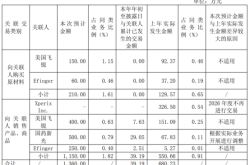Thailand's auto market plunges, what should Chinese automakers do?
![]() 11/05 2024
11/05 2024
![]() 447
447

Introduction
Thailand's new car market continues to struggle, with significant declines in production and sales.
According to the latest wholesale data released by relevant agencies, Thailand's new car market continued to deteriorate in September 2024, with sales suffering a notable drop. Compared to 62,086 units a year ago, sales in September plunged by 37% to only 39,048 units. This data not only reveals the weakness in market demand but also reflects the severe challenges faced by Thailand's automotive industry.
Looking back, Thailand's auto market briefly rebounded from the pandemic's low point in 2022 but did not last long, entering a sustained decline thereafter. This downtrend has continued for nearly two years. Notably, sales in September 2024, the last month, fell below the 40,000-unit threshold for the first time since the pandemic peak in mid-2020, undoubtedly adding more pressure to the market.
Regarding the reasons for the plunging sales, a spokesperson from the relevant department provided a clear explanation. They pointed out that banks have become stricter with car loan approvals to reduce the risk of non-performing loans, which have surged dramatically over the past two years. It is estimated that the rejection rate for car loans has reached approximately 60%, posing a significant barrier to potential car buyers and contributing to the market downturn.

Meanwhile, Thailand's overall economic activity has somewhat recovered, with a year-on-year growth of 2.3% in the second quarter (1.6% in the first quarter), mainly driven by export growth. However, Thai consumer confidence has continued to weaken, with private consumption growth slowing from 6.9% to 4.0%. This reflects the high household debt, estimated at around 90% of GDP, further suppressing consumers' willingness to purchase cars.
In the context of Southeast Asia's auto market, Thailand still ranks third, behind Indonesia and Malaysia. However, data from the first nine months of 2024 show that Thailand's car sales have declined by 25% from the same period last year, reaching only 438,654 units from 586,870. Notably, demand for pickup trucks, widely used by small business owners, has been particularly weak this year.
In the field of new energy vehicles, while sales of battery electric vehicles (BEVs) fell by 7% year-on-year in September to 6,606 units, sales so far this year have still maintained a 12% growth rate, reaching 75,653 units. In response to the sluggish demand, relevant agencies urged the government this month to relax the manufacturing requirements for pure electric vehicles related to incentive measures to alleviate production pressure on manufacturers, primarily Chinese companies.
It is worth mentioning that Chinese automakers such as BYD, GAC Aion, Hozon Auto, and Great Wall Motors began producing pure electric and hybrid vehicles at newly built factories in the country last year. Toyota and Isuzu also plan to start producing battery-powered pickup trucks next year, indicating that Thailand remains an important auto production base in the region.
Nevertheless, data shows that Thailand's total car production in the same month was only 122,277 units, a decrease of 25.48% compared to September 2023. This trend is not isolated; in the first nine months of this year, Thailand's car production has declined by 18.61% cumulatively, totaling only 1,128,026 units. More severely, export production fell by 15.78% year-on-year, while domestic production plummeted by 42.31%, indicating a dual weakness in demand in both domestic and foreign markets.
On the export front, the number of complete vehicles exported in September was 80,254 units, a decrease of 17.67% year-on-year. Geopolitical tensions in the Middle East have not only disrupted shipping routes but also further weakened demand in major markets, exacerbating Thailand's auto exports. Meanwhile, electric vehicle sales have not been spared, with BEV registrations falling by 25.81% in September. Although the cumulative registration for the year has maintained an 11.67% growth rate, this growth has significantly slowed down.
Faced with such a severe situation, the automotive industry organization plans to convene a meeting in November to reassess and adjust this year's production and sales targets. It is expected that these targets will be revised downward to more accurately reflect the current market conditions. Although the Board of Investment aims to boost industry confidence by promoting increased investment, high household debt and its potential impact on economic recovery remain concerning.
Insiders indicate that the current state of car production this year is indeed worrying. They plan to discuss and revise the 2024 car production estimate again in November, and the current target of 1.7 million units is likely to be lowered. At the same time, the export production target may be reduced by 50,000 to 100,000 units from 1.15 million, and the domestic production target may be lowered by 20,000 to 30,000 units from 550,000.

The financial institutions' continued strict lending policies are undoubtedly one of the critical factors contributing to this dilemma. Due to stricter loan approvals, many potential car buyers cannot obtain sufficient financial support, thereby suppressing demand in the auto market. Furthermore, the decline in electric vehicle sales has exacerbated the industry's challenges. Consumers express concerns about the price uncertainty of electric vehicles, reducing their willingness to purchase.
Although the global decline in lithium prices has led to a drop in battery prices, bringing a glimmer of hope to the electric vehicle market, some fear that battery prices may soar again in 2025, posing a new obstacle to the popularization and promotion of electric vehicles.
However, Chinese electric vehicle brands are still favored in Southeast Asia. Compared to European and North American markets, Chinese manufacturers do not face the same import barriers in markets like Thailand. Therefore, Chinese brands such as BYD have actively entered markets like Singapore and Malaysia and invested in factories in Thailand to secure a foothold in this emerging market.
In summary, Thailand's automotive industry is facing multiple challenges and difficulties. However, opportunities often emerge amidst crises. For Thailand's automotive industry, how to adjust strategies, address challenges, and seize opportunities will be crucial to its future recovery and growth.







